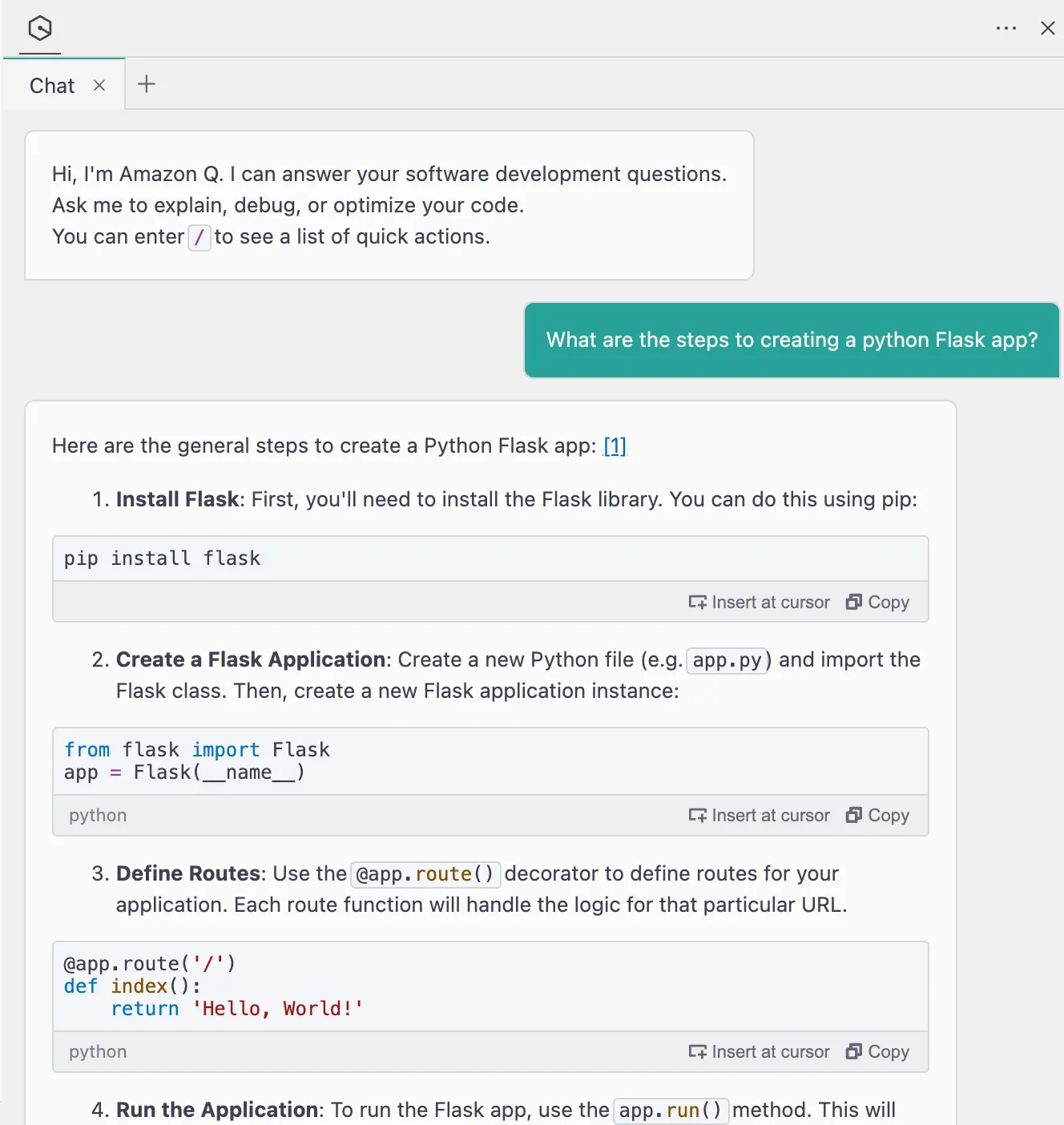I'm a lazy developer. Here's how Amazon Q is enabling me
I'm always on the hunt for ways to improve my productivity as a lazy developer. Here's what I've learned and how Amazon Q is helping me stay in the flow.
What are the steps to creating a python Flask app? Amazon Q Developer outlines the steps I need to take to get started, providing me with both code snippets and explanations.
How do I initialize a python virtual environment?

All of this allows me to stay in my IDE, reducing my context switching, and stay in the flow. Check out how my colleague stays in the flow with Amazon Q.



json.loads line:
invoke_model API.

ModelId and Body when calling invoke_model when they should have been lower-case modelId and body.How would you write a test for the send_prompt_to_bedrock function using mocks? and got this response:
- I'm reducing my context switching by staying in my IDE
- I'm getting support for my lazy developer mentality by generating boilerplate code, summarizing what code is doing, and getting help with refactoring
- I'm delegating my debugging work
- I'm getting help with writing my unit tests
